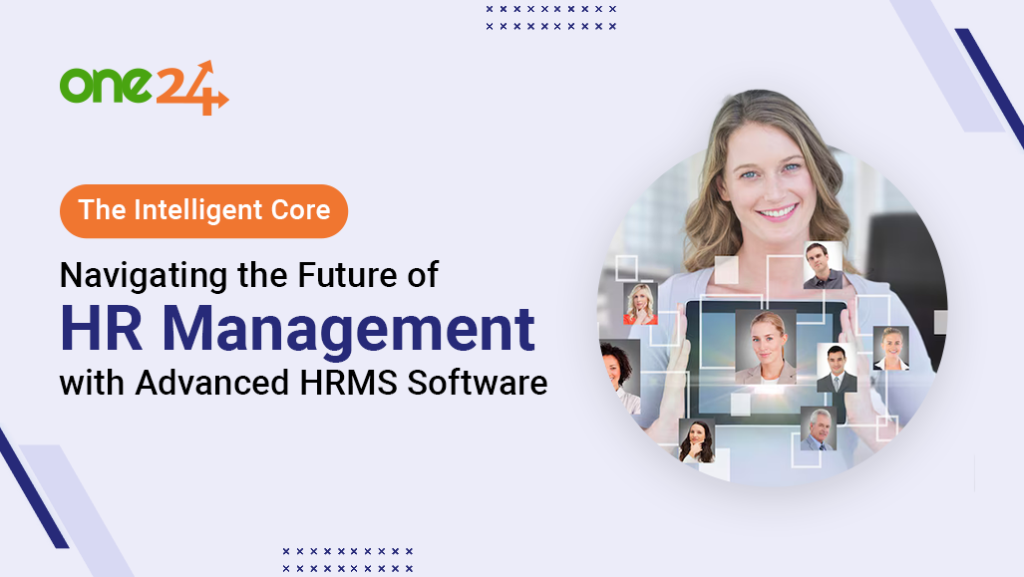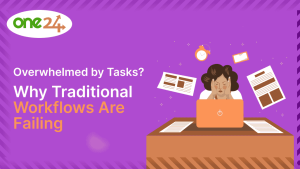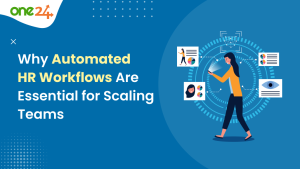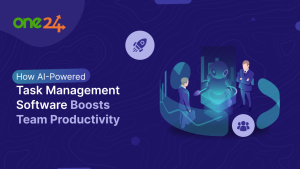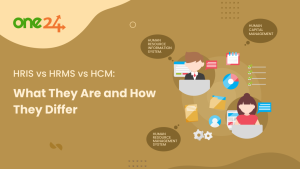The world of work is never a fixed one, subject to the influence of technology, shifting employee expectations, and a changing global environment. At the very center of an organization’s capacity to change and thrive is the function of human resources. No longer merely an administrative function, HR is a strategic facilitator within the company. And the continuous development of HRMS (human resources management system) software is central to this transformational role. Forthcoming HR management does not equate to digitalizing existing processes. It is leveraging smart, intuitive, and connected HRMS systems to improve the employee experience. Facilitate strategic decision-making and build future-proof and resilient workforces.
The Rise of the Cloud: Foundation for Agility
The shift to cloud-based HRMS is no longer a fad, but rather a business imperative. The old, traditional on-premise systems are often unreliable, time-consuming to maintain, expensive to repair, and not as flexible to the demands of employee mobility embedded into today’s work culture. In contrast, HRMS based in the cloud provides infinite scalability to expand. Or contract the amount of HR effort and technology necessary to run the business, as needed. This ability is especially important to business growth, mergers, and acquisitions. And unforeseen changes like an entire workforce moving to remote work.
In addition to cost savings related to infrastructure and maintenance, cloud platforms inherently provide improved data security with regular updates and compliance with privacy requirements on a global scale. Which is relevant given the privacy-sensitive nature of HR data. It also allows employees to access HR resources in real-time from anywhere on any device by utilizing self-service options. Which decreases the administrative burden on HR teams quickly.
AI and Automation: Redefining Efficiency and Insight
Arguably, the most transformational phenomenon influencing the registered future of HRMS is the widespread use of Artificial Intelligence (AI) and automation. AI is far more than automating back office, repetitive transactions – pay, leave, etc. It is transforming every element of the employee lifecycle:
- Intelligent Talent Acquisition: AI tools for recruiting are simplifying the process of hiring. By automating resume review, matching candidates based on skills instead of keywords. And even predicting who will be the best candidate for the role. Hiring managers reduce time-to-hire, and hopefully, unconscious bias is reduced. Which leads to more diverse and inclusive hiring.
- Personalized Employee Experience: Artificial Intelligence can enable incredible hyper-personalized employee experiences. Such as intelligent chatbots developed with machine learning and artificial intelligence, providing specific HR answers, customized learning paths based on learners’ skills gaps, and career ambitions. Incorporating AI into programs that are more engaging and supportive, resulting in better employee satisfaction and likelihood to stay.
- Performance Management Redefined: The era of inflexible, yearly performance assessments is behind us. AI enables continuous feedback loops, real-time coaching, and objective assessment of performance, facilitating early interventions and more accurate talent growth.
- Predictive Analytics for Strategic HR: Predictive analytics powered by AI is giving HR leaders insights never before seen. With predictive analytics, HRMS can now not only look at historical data to predict future workforce needs, but also flag employees who are at high risk of attrition. As well as predict skills shortages in the organization. AI-driven predictive analytics allows HR to get ahead of challenges with data-informed decision-making. And create strategically focused talent management programs, and not just reactive plans to fix problems.
The Employee Experience at the Forefront
The future of HRMS will be centered on employee experience (EX). It’s all about the individual experience, making it as seamless, effortless, and engaging as possible from onboarding to offboarding. Status quo HRMS platforms have built-in features that add tremendous value to the EX:
- Employee Self-Service (ESS) Portals: These all-inclusive portals enable staff members to easily and independently manage their personal data, view pay stubs, request leaves, and sign up for benefits.
- Integrated Learning and Development: Learning Management Systems (LMS) and HRMS now seamlessly integrate. Providing access to a variety of training courses, tools for skill development, and tailored learning suggestions.
- Collaboration and Communication Tools: As remote and hybrid work models become more popular, HRMS platforms are adding strong collaboration and communication tools. To help scattered teams feel more connected and like they belong.
- Well-being and Engagement Features: In order to show a comprehensive approach to employee care, future HRMS will progressively incorporate features devoted to employee well-being, mental health support, and engagement surveys in addition to traditional HR functions.
Challenges and the Path Forward
While the future of HRMS looks bright and offers an incredible opportunity for organizations, businesses will still encounter challenges around the implementation and adoption of new technology. Perhaps the biggest challenge will be migrating data from legacy systems, which has the potential to be very difficult. Maintaining data security and compliance with any regulatory standards will always be critical. This is especially true considering many employees will resist change and may not understand what the objectives of the HRMS deployment are.
Given these challenges, organizations need to implement a change management strategy. Change management means effectively communicating the benefits of the new HRMS, providing training for all types of users, and ensuring that vendors support the implementation phase. Furthermore, organizations will need to address issues of ethics surrounding AI and data privacy. They will also need to ensure automation in the HR process is inclusive, fair, and transparent.
Conclusion
There is a close connection between HR management’s future and the evolution of HRMS software. As organizations seek to balance agility with efficiency and have a genuinely engaged workforce, intelligent, integrated HRMS systems will be the backbone. Within the transition to cloud solutions, with the use of AI and automation, along with a focus on employee experience, HR functions may shift from administratively-focused to strategically-focused and an enabler of success for organizations, and ultimately influence the future of work. The outlook will be more data-driven and personalized, but ultimately, a more human-focused way to manage talent.

